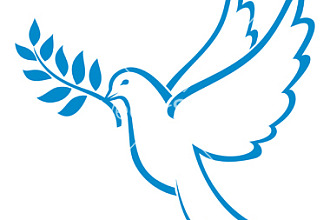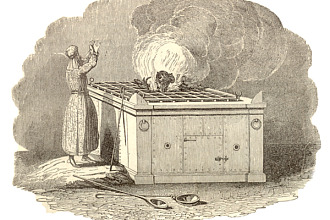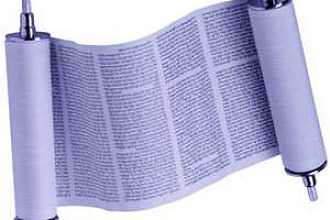The Torah states “Whenever a woman has her menstrual period, she will be ceremonially unclean for seven days. Anyone who touches her during that time will be unclean until evening.
Anything on which the woman lies or sits during the time of her period will be unclean.” Leviticus 15:19-20. Some people may feel uncomfortable with these verses because it is considered insulting to women declare their natural body functions during their menstrual cycle as unclean.
However, the Torah doesn’t target the body functions of women while excluding men as some may assume. “…you shall separate the children of Israel from their uncleanness, lest they die in their uncleanness…This is the law for one who has a discharge, and for him who emits semen and is unclean thereby, and for her who is indisposed because of her customary impurity, and for one who has a discharge, either man or woman...’” Leviticus 15:31-33. Semen would make a man temporally unclean just as blood from a woman’s menstrual cycle would.
So when the Torah says a woman on her period is unclean it isn’t being sexist and suggesting women are vile. It is saying that the blood itself makes things unclean just as semen from a man was unclean and had to be managed carefully. No one claims the Torah is sexist toward men when it states, “If any man has an emission of semen, then he shall wash all his body in water, and be unclean until evening. And any garment and any leather on which there is semen, it shall be washed with water, and be unclean until evening.” Leviticus 15:15-16. So why do some seem to feel it is sexist and God is against women when those same laws apply to women’s menstrual blood?
The Torah’s laws regarding bodily fluids reveal wisdom that is supported by science today. “Blood and any body fluid visibly contaminated with blood should be considered capable of transmitting hepatitis B virus (HBV), hepatitis C virus (HCV), and human immunodeficiency virus (HIV). Semen and vaginal secretions should also be considered potentially able to transmit these viruses.” (Waseem, Muhammad, n.d).
Now imagine what it would be look living within a large community in the wilderness like Israel was on their way to the promised land and no one practiced hygiene to avoid spreading high risk bodily fluids? If one person had an illness and people were not careful the risk of spreading an illness and causing a major outbreak among many people would have been huge. The risks of exposure to bodily fluids is still a big deal today.
The Torah’s laws regarding sanitation extend to nonsexual bodily functions and conditions as well including death. “Whoever comes in contact with the body of a dead person is to remain unclean for seven days.” Numbers 19:11 “You also must have a place outside the camp where people can go to relieve themselves …Then, when you relieve yourself, you must dig a hole and cover it up. This is because the Lord your God is there with you in your camp to save you and to help you defeat your enemies. So the camp must be holy. Then he will not see something disgusting and leave you.” Deuteronomy 23:12-14.
The Torah does not encourage carelessly touching random dead people and bodily fluids in general, especially without taking appropriate steps to limit exposure to whatever is unclean. God doesn’t blame women for having a period any more than God blames men for having semen or hates anyone for being dead. It is not a sin to have human bodily processes, God just requires everyone to strive for sanitary conditions because cleanliness is next to Godliness after all.
Reference: Waseem, Muhammad n.d “Body Fluid Exposures” E-Medicine received from http://emedicine.medscape.com/article/782611-overview

























